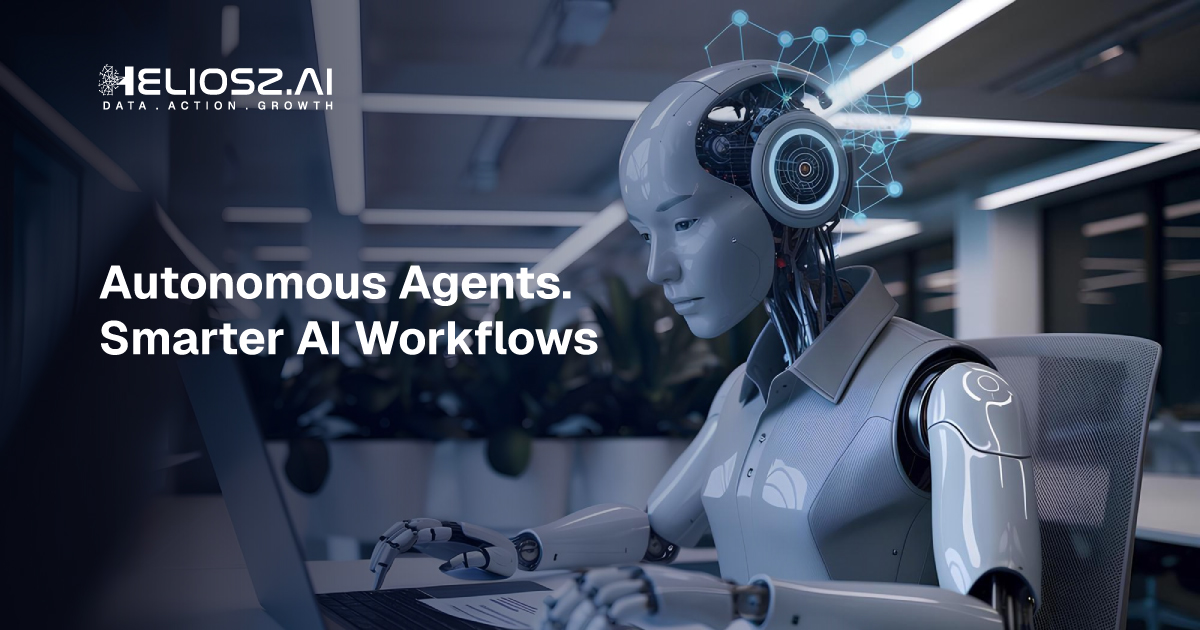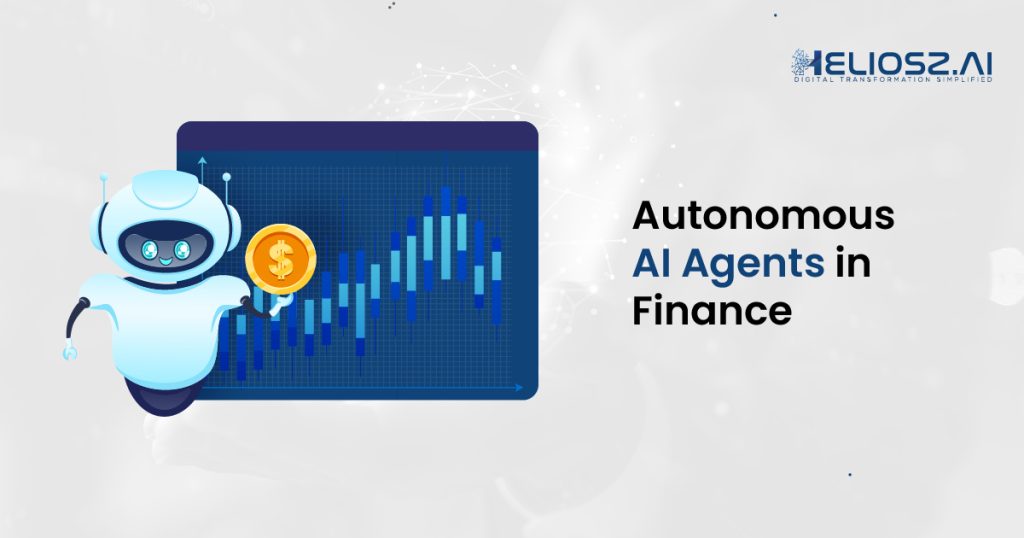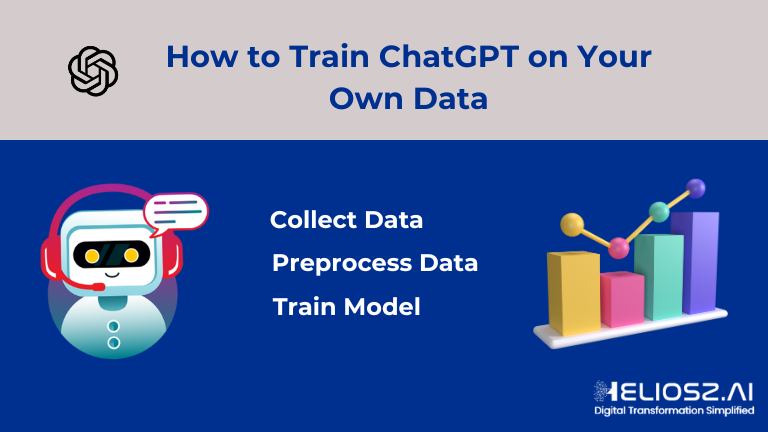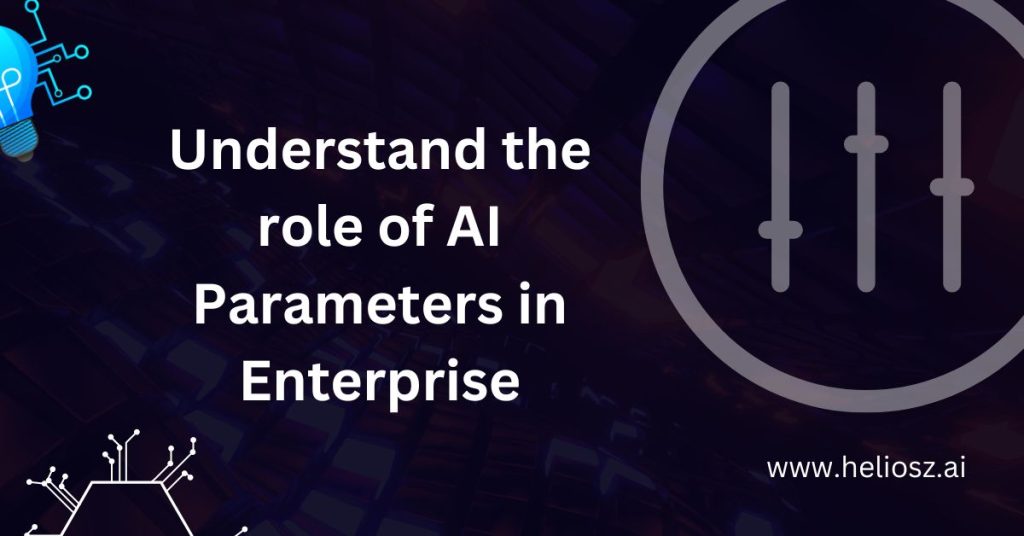The integration of AI in the financial industry has risen exponentially in the last few years, with advanced technologies being introduced every day. Among all AI innovations and applications, the most groundbreaking advancement is autonomous AI agents. Autonomous AI agents are self-directed software systems capable of making decisions and executing actions without human interference. These agents are effortlessly reshaping operations in finance industries from portfolio management to fraud detection. Financial organizations, including the world’s popular banks, insurance companies, and more, have already implemented AI agents and witnessed incredible change in ROI status.
This informative article covers AI agents’ benefits and how AI agents optimize financial operations.
What are AI Agents?
Autonomous AI agents are software entities capable of perceiving their environment, making decisions, and taking actions. Depending on the application, they may leverage machine learning, natural language processing (NLP), deep learning, or reinforcement learning.
AI agents are classified into six groups based on their intelligence and complexity.
- Simple Reflex Agents
- Model-Based Reflex Agents
- Goal-Based Agents
- Utility-Based Agents
- Learning Agents
- Multi-Agent Systems (MAS)
Applications of AI Agents in Portfolio Management
a) Intelligent Asset Allocation
Traditional portfolio management relies heavily on human insight and analysis of historical data. Autonomous AI agents supplement this by reshuffling assets dynamically based on prevailing market movements, economic indicators, and forecasting analysis. They use algorithms like Monte Carlo simulations, Black-Litterman models, and Bayesian optimization to construct and rebalance portfolios according to specified risk-return profiles.
b) Sentiment Analysis and Market Forecasting
AI Agents consume large quantities of unstructured data from financial news, earnings reports, to social media buzz to measure the market sentiments. Natural language processing allows agents to identify the shift in investor behavior, geopolitical factors, macroeconomic signs, and other significant factors and translate these data sets into actionable investment insights.
c) High-Frequency Trading (HFT)
Autonomous AI agents are intelligent in high-frequency trading methods, leading to the execution of a huge number of trades per second. These agents can locate minute opportunities in the market, arbitrage inefficiencies, and respond faster than any human trader could. Their response generation and decision-making are based on instant-level data, pattern recognition, and predictive modeling.
AI Agents in Risk Management and Compliance
a) Real-Time Risk Assessment
AI agents provide continuous and consistent risk monitoring by analyzing exposure, liquidity, volatility, and counterparty risks. These systems adjust positions automatically when risk thresholds are breached, making sure they are compliant with internal policies and regulatory limits.
b) Regulatory Compliance Automation
Financial regulation issues are one reason why any firm requires ongoing monitoring. AI agents automate compliance inspections by evaluating regulatory papers, monitoring transaction logs, and investigating noncompliance behavior. These AI agents enable firms to comply with regulatory frameworks such as MiFID II, Basel III, and Dodd-Frank in real time.
AI Agents in Fraud Detection and Prevention
a) Behavioral Anomaly Detection
AI agents utilize machine learning models to demonstrate normal behavioral patterns for financial transactions. Any unfamiliar actions and deviations from usual patterns, such as unusual login attempts, unexpected transactions, or changes in device or activity location, are flagged for further investigations.
b) Adaptive Fraud Models
AI agents get retrained on a new set of data continuously, unlike rule-based systems that need manual updates on any data. This adaptability skill allows the agents to identify any new fraud tactics, such as synthetic identity scams, phishing, and account acquisition, that dodge traditional systems.
c) Collaborative Intelligence
AI agents can collaborate with human fraud analysts by giving importance to the critical alerts based on risk scores, reducing false positives in the operations of some financial firms. This human-AI agent collaboration makes sure the priority cases are escalated while less risky abnormalities are handled autonomously.
Benefits of Autonomous AI Agents in Finance
a) Speed and real-time decision-making capability
Autonomous AI agents are capable of processing huge amounts of data in real-time and lightning fast in making decisions. These powerful agents show the ability to outperform human traders by executing thousands of trades per second in high-frequency trading, where milliseconds can make a big difference. They ensure precision in executing trades based on market signals, news sentiments, and technical indicators.
b) Enhanced Accuracy and Reduced Human Error
The decision-making by humans in the finance sector is susceptible to errors, cognitive biases, and fatigue. But AI agents, on the other hand, operate consistently and precisely. They will adhere to logical algorithms, continuously optimized parameters, and trained data. They can also monitor all compliance rules and chances of risk exposures without the slips and oversights.
c) 24/7 Monitoring and Operation
Autonomous agents can function without any breaks or lag, unlike humans. They will analyze global markets, follow trends, track risk metrics, or scan for fraud even when financial markets are closed or during non-business hours. Round-the-clock oversight ensures no critical events are missed at any unavailable hours, unlike humans.
d) Scalability and Efficiency
As AI agents developed to manage thousands of financial portfolios simultaneously, they proved to be the most scalable and efficient business implementation. Agents are capable of processing millions of transactions and handling large-scale data sets. This facilitates financial organizations to scale their services without any proportional increase in human resources. Agents in action bring more cost efficiency and the ability to serve more clients with customized solutions.
e) Advanced Fraud Detection and Security
Autonomous agents detect fraudulent activity faster than traditional systems by combining anomaly detection, behavioral analytics, and real-time data monitoring. They can rapidly detect suspect activities, such as account takeovers or strange transaction patterns, and take corrective action without requiring manual interaction.
f) Improved Customer Experience
In client-facing jobs, AI agents underpin robo-advisors and virtual financial assistants, which provide personalized recommendations, answer questions, and give 24-hour support. They can also automate loan approvals and credit checks using real-time credit scoring and risk assessment.
g) Cost Reduction
AI agents free up human analysts’ time for strategic tasks by automating repetitive and time-consuming operations such as regulatory reporting, transaction reconciliation, and data collection. Over time, this leads to significant cost reductions.
Heliosz: Advanced AI Agent Development for Financial Institutions
Heliosz is a leading AI agent development company that specializes in building powerful autonomous agents for financial organizations worldwide. We automate complex financial operations for banks, investment companies, and fintech businesses. Heliosz makes it happen by integrating its wide experience and knowledge in ML, predictive analytics, and regulatory technology. Their expert team can develop powerful AI agents that can optimize various financial operations in your enterprises.
Connect with the team today and get it done right away!
Critical financial institutions need responsible AI agent development firms like us!
Conclusion
Autonomous AI agents are changing the landscape of modern banking, from complex portfolio management to fraud prevention. They mark a fundamental shift in efficiency, scalability, and decision-making. However, their implementation requires careful consideration of transparency, security, and ethical implications. As these intelligent systems advance, they will become invaluable allies in managing the fast-paced, high-stakes business of banking.






























